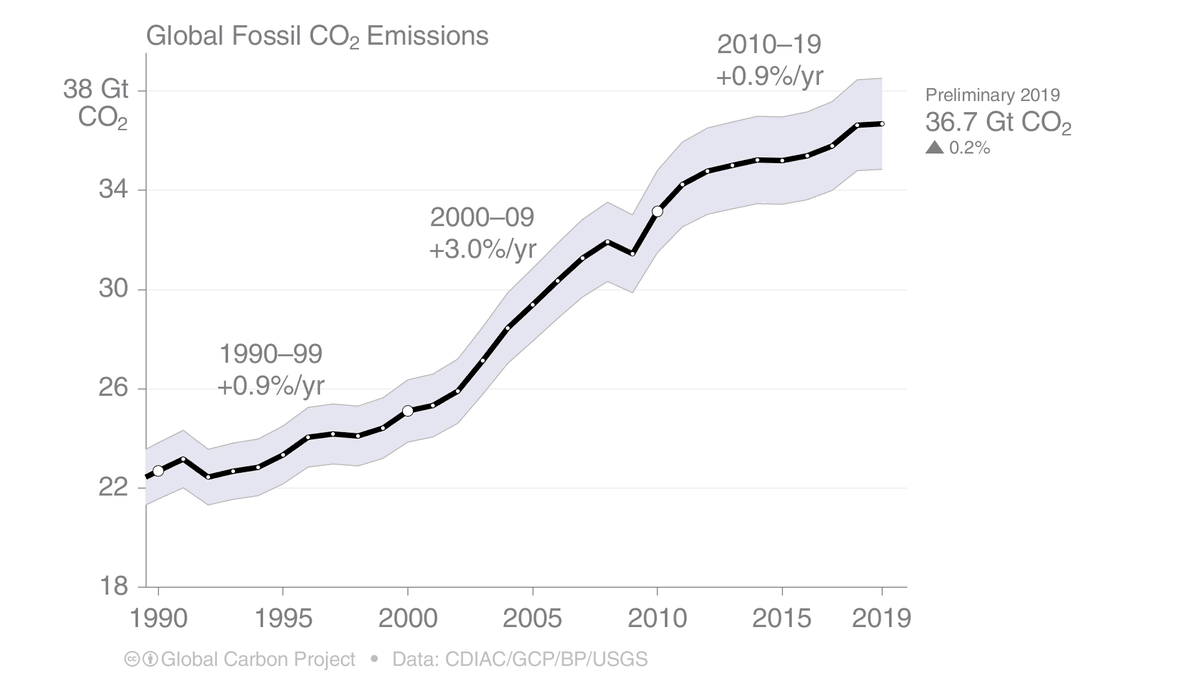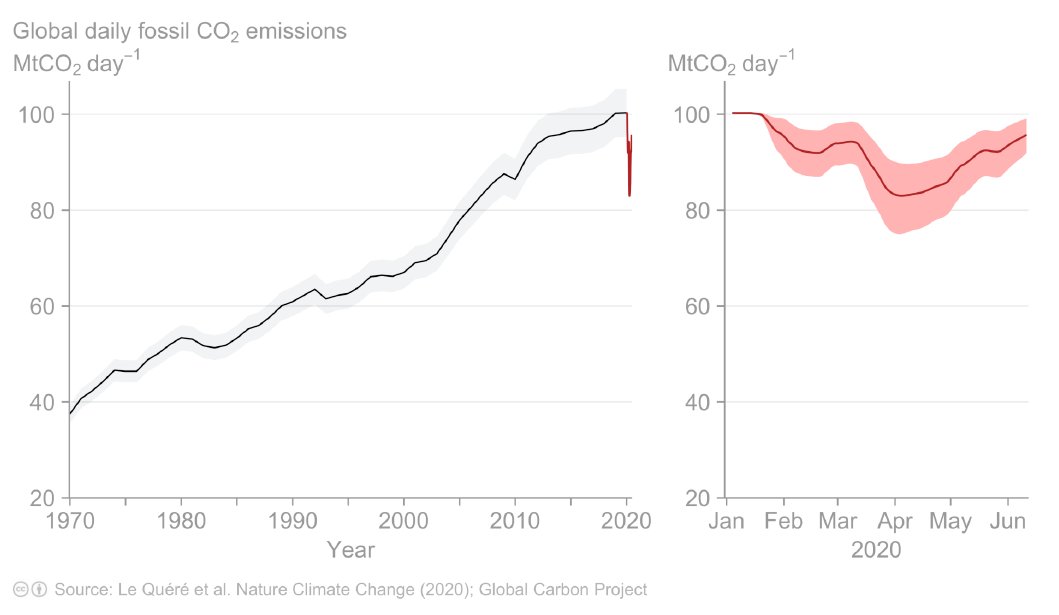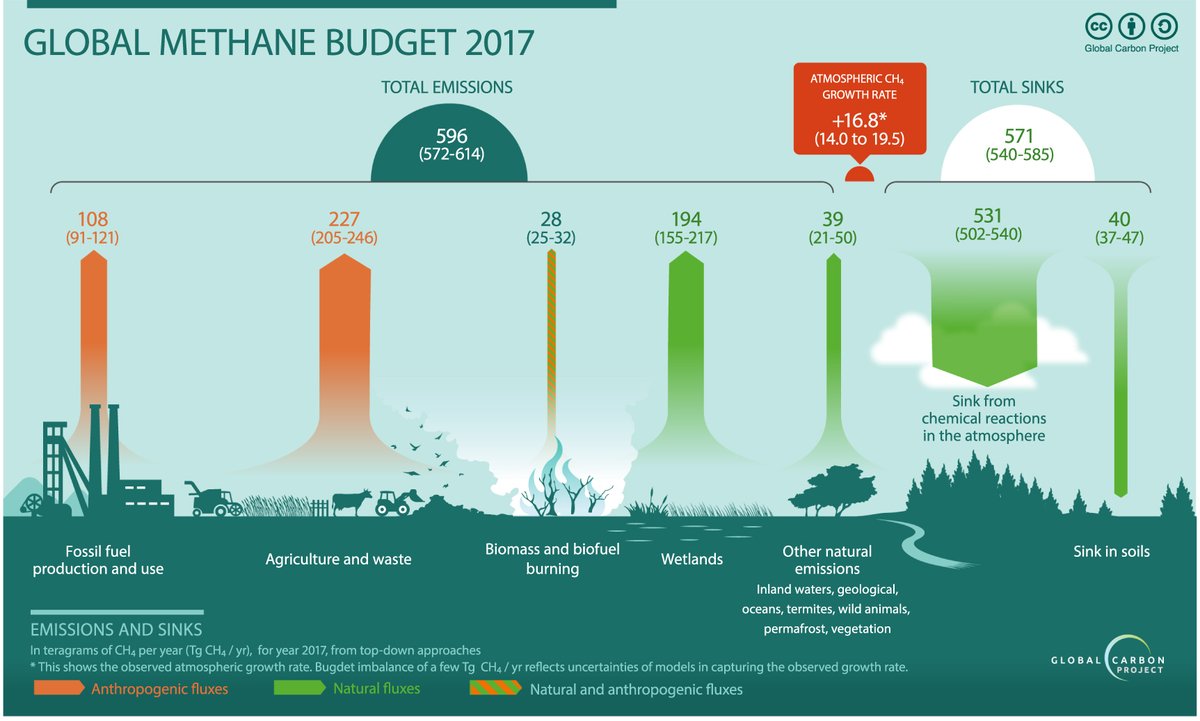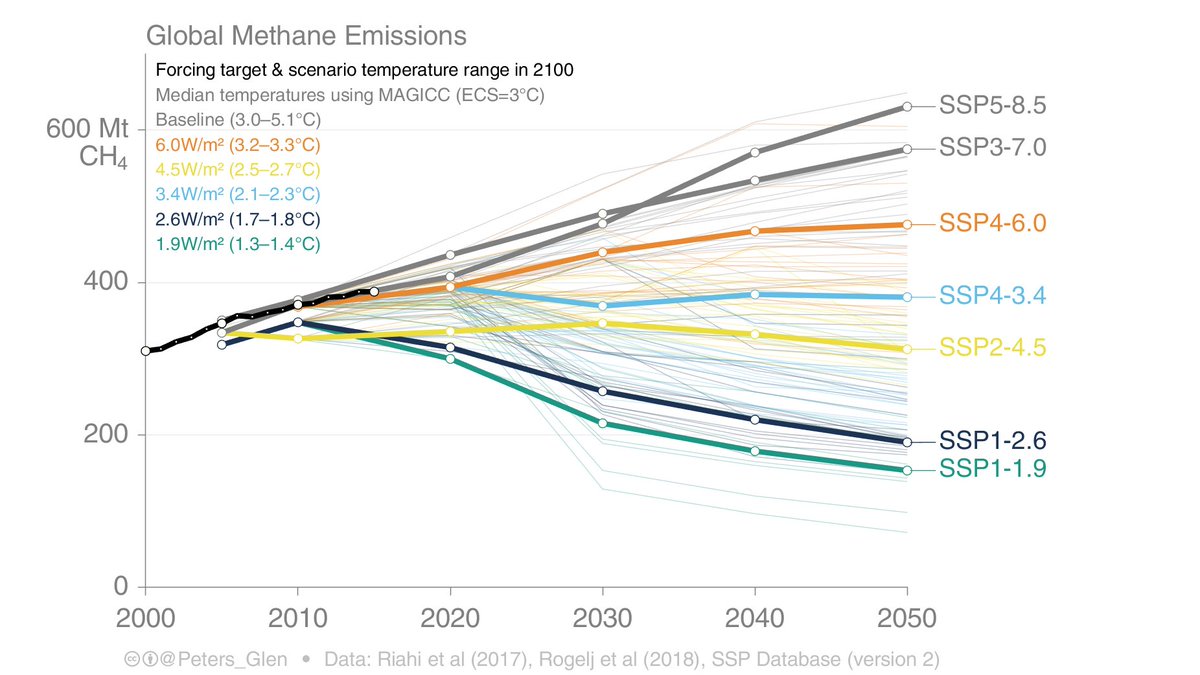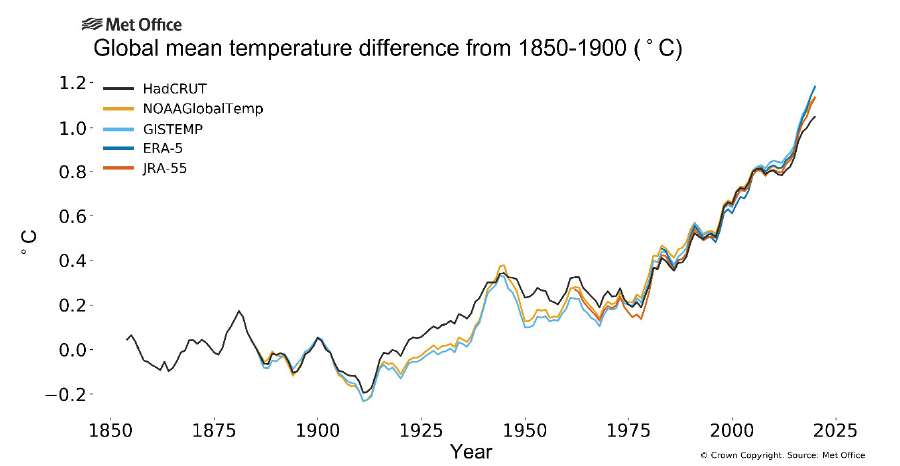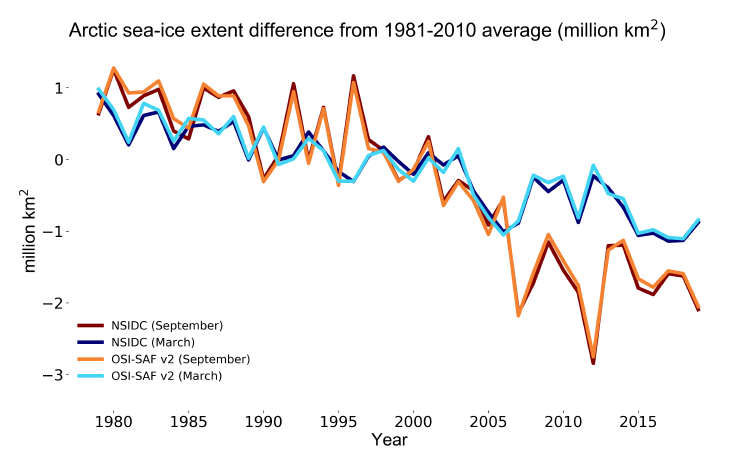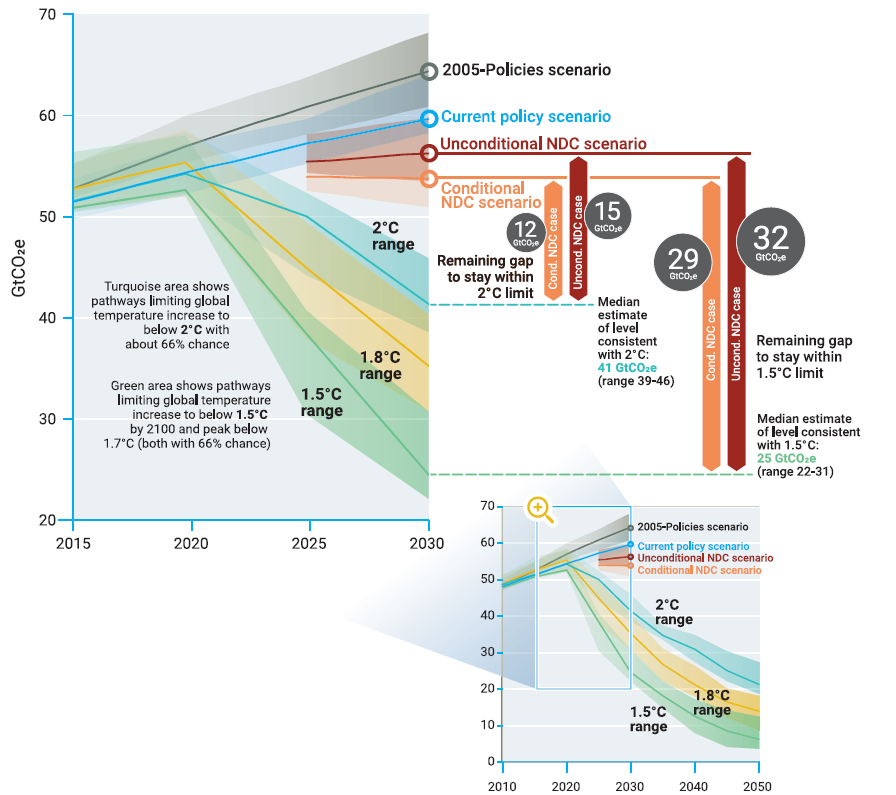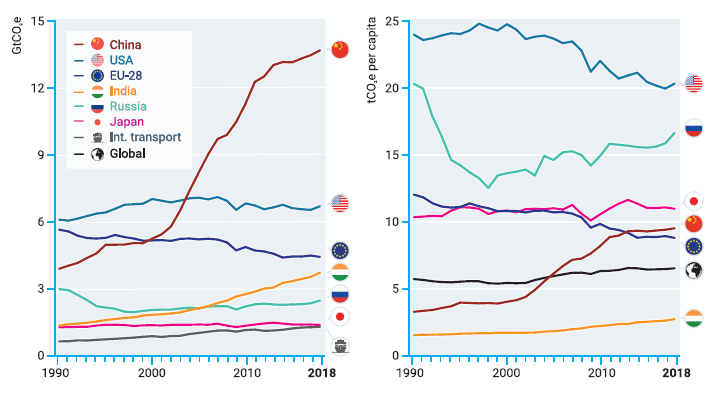THREAD: What is the latest in climate?
Concentrations of CO₂, CH₄, & N₂O continued to increase in 2019 & 2020, reaching 150%, 260%, & 120% above pre-industrial.
https://public.wmo.int/en/resources/united_in_science">https://public.wmo.int/en/resour...
Concentrations of CO₂, CH₄, & N₂O continued to increase in 2019 & 2020, reaching 150%, 260%, & 120% above pre-industrial.
https://public.wmo.int/en/resources/united_in_science">https://public.wmo.int/en/resour...
2. Preliminary data suggests fossil CO₂ emissions rose only 0.2% in 2019, slowing than the decadal increase of 0.9%/yr.
Though, there is high uncertainty on this number because of uncertainty in Chinese coal use. Some other datasets suggest higher growth.
Though, there is high uncertainty on this number because of uncertainty in Chinese coal use. Some other datasets suggest higher growth.
3. By early June 2020, global daily fossil CO₂ emissions were down 5% (1%–8%) compared to the same period in 2019, due to COVID restrictions.
We estimate a decline for the full year 2020 in the range of 4% to 7%, depending on pandemic scenarios.
https://rdcu.be/b4lg7 ">https://rdcu.be/b4lg7&quo...
We estimate a decline for the full year 2020 in the range of 4% to 7%, depending on pandemic scenarios.
https://rdcu.be/b4lg7 ">https://rdcu.be/b4lg7&quo...
4. Fossil CO₂ emissions track the middle of a range of emissions scenarios:
* Little evidence that fossil CO₂ emissions are following high end scenarios
* Little evidence that fossil CO₂ emissions are remotely on track for <2°C.
* We are tracking the "middle of the road"
* Little evidence that fossil CO₂ emissions are following high end scenarios
* Little evidence that fossil CO₂ emissions are remotely on track for <2°C.
* We are tracking the "middle of the road"
5. Both emissions & atmospheric concentrations of CH₄ continue to grow.
Both agriculture (livestock) & fossil fuels extraction have been roughly equally responsible for the emissions growth. Wetlands & changes in sink strength only have a small role in the atmospheric increase.
Both agriculture (livestock) & fossil fuels extraction have been roughly equally responsible for the emissions growth. Wetlands & changes in sink strength only have a small role in the atmospheric increase.
6. CH₄ emissions are appear to track the higher end of a range of emission scenarios.
In contrast to CO₂ emissions, where renewable energy is beginning to penetrate into electricity generation by coal, mitigation measures for CH₄ have been limited.
In contrast to CO₂ emissions, where renewable energy is beginning to penetrate into electricity generation by coal, mitigation measures for CH₄ have been limited.
7. The average global mean surface temperature for 2016–2020 will be among the warmest of any equivalent period on record, currently estimated to be 1.1 °C (±0.1°C) above pre-industrial (1850–1900).
There& #39;s a 25% chance 1.5°C will be exceeded at least once in the next 5 years!
There& #39;s a 25% chance 1.5°C will be exceeded at least once in the next 5 years!
8. The average rate of sea level rise is estimated to be
3.2±0.3mm/yr since 1993, & from the rate has increased from 4.1mm/yr in 2011–2015 to 4.8 mm/yr in 2016–2020.
A greater loss from the ice sheets is the main cause of the increased rise, building on top of thermal expansion.
3.2±0.3mm/yr since 1993, & from the rate has increased from 4.1mm/yr in 2011–2015 to 4.8 mm/yr in 2016–2020.
A greater loss from the ice sheets is the main cause of the increased rise, building on top of thermal expansion.
9. The long-term trend over the 1979–2019 period indicates that Arctic summer sea-ice extent has declined at a rate of approximately 13% per decade.
Arctic sea-ice continues to decline in all months of the year & since 1979 ice over 5 years old declined 90%.
Arctic sea-ice continues to decline in all months of the year & since 1979 ice over 5 years old declined 90%.
10. The emissions gap between pledges & cost optimal pathways is larger than ever.
The current level of ambition sets the world on course to a temperature increase of ~3°C by the end of this century (33% probability).
The current level of ambition sets the world on course to a temperature increase of ~3°C by the end of this century (33% probability).

 Read on Twitter
Read on Twitter
